A Thought Leader Series Piece
 By Chris Spence By Chris Spence
Note: Chris Spence is the director of the Institute at the Golden Gate, a program of the Golden Gate National Parks Conservancy in partnership with the National Park Service that advances environmental stewardship and well-being through parks and public lands.
Do you ever feel like the news on climate change is stuck on repeat? Day after day and year after year, we seem to hear the same dire predictions from climate scientists and activists, the same calls to "act now before it’s too late!"
I first started working on climate policy in 1993, which coincidentally is the year the movie "Groundhog Day" first screened. It’s about a selfish television weatherman doomed to repeat the same day time and again until he finally learns to change his ways.
Over the past 20 years, I’ve sometimes felt like I’m stuck in "Groundhog Day." While the science is stronger than ever, working on climate policy can feel like being trapped in a time warp of inaction and paralysis. We all know the problem is real and growing, but serious action on a large scale sometimes seems beyond our grasp.
Who can lead us out of this?
Back in the 1990s, I thought it might be our political leaders. The United Nations (UN) was leading the way through the newly minted Framework Convention on Climate Change and Kyoto Protocol. Having attended more than my share of UN climate negotiations, I can vividly recall the palpable sense of excitement among the thousands of diplomats and other participants who attended some of the early meetings. Freshly inked, the UN agreements had the vocal support of high profile leaders like Al Gore and Tony Blair. What could possibly go wrong?
Fast forward a few years and the mood had shifted. By the early 2000s, the UN process felt like it was losing its way. For several years, I led teams of experts who attended these meetings on behalf of the International Institute for Sustainable Development (IISD). IISD has a marvelous publication—the "Earth Negotiations Bulletin"—which it publishes from UN events. The "Bulletin" provides detailed news and analysis each day on the state of play, including countries’ negotiating positions and strategies. It’s a non-partisan service providing much-needed transparency—and hopefully some accountability—on why meetings either succeed or fail.
As the years went by, the number of failures began to outweigh the successes. I recall a particularly dismal conference where I went looking to interview one of the prominent European politicians to get their perspective. By chance, I passed two of these VIPs in less than five minutes. First, Britain’s Deputy Prime Minister trudged by, head bowed and alone, not an adviser in sight. Moments later, I spied a prominent European environment minister sitting in his office at the conference center, head in his hands. Both looked so downcast, I didn’t have the heart to speak with them.
The power of small, local change
Clearly, the UN process is still struggling. However, I still believe that all countries can work together and I would never give up hope that the UN can lead again. But for now, it’s clear we cannot depend on a top-down approach. The same goes for our national leaders; around the globe, there are strong forces aligned against political action. Policy victories from our world’s capitals are few and far between.
Read more »
|
|
USA Today: Will thirsty Phoenix survive climate change?
|
|
Although city officials believe Phoenix will have enough water, Arizona state climatologist and Sustainability Scientist Nancy Selover says increasing temperatures will still have dangerous health effects for the elderly, homeless, and underprivileged. Read more »
|
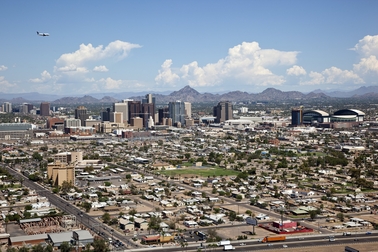
|
Sustainability students experience cultural, corporate contexts from leaders in Dubai
|
|
The United Arab Emirates' Minister of Economy met with several School of Sustainability students to discuss tourism, governance, economics, and local issues as part of the Global Sustainability Studies Program. Read more »
|

|
The Guardian: How can sustainability leaders be successful?
|
|
Bruno Sarda, consultant for the Walton Sustainability Solutions Initiatives, writes that climate change alleviation can come from leaders who inspire, set concrete goals, and instill a sustainability strategy. Read more »
|
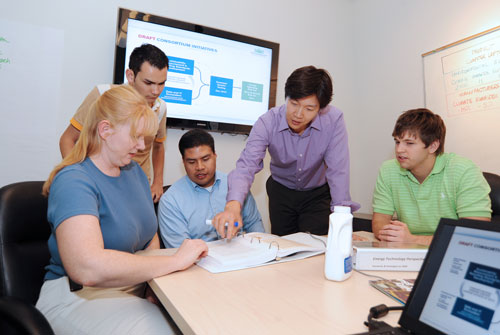
|
Juggling solutions, experts is all in a day's work for sustainability grad
|
|
Doctoral graduate Rajesh Buch is a practice lead with the Sustainability Solutions Extension Service, organizing students and faculty members into consulting groups for private and public sustainability projects. Read more »
|
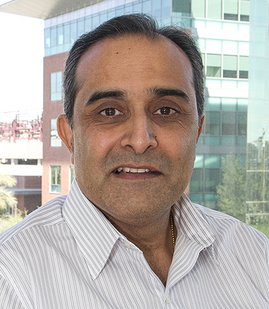
|
Green Living Magazine: Learning about LightWorks
|
|
In the magazine's July issue, Gary Dirks discusses how Arizona is a working lab for solar technologies thanks to ASU LightWorks research, but "use-inspired" social programs need to be developed to fully implement solar power in the state. Read more »
|
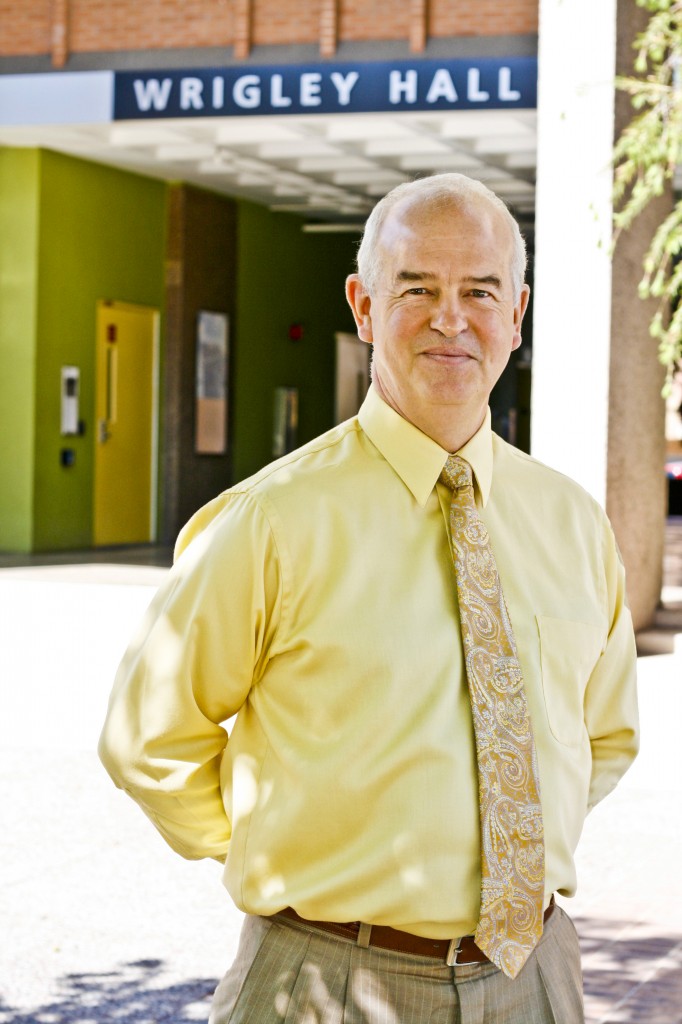
|
ASU-led algae cooperation to host algae workshop Aug. 19-23
|
|
ASU's Algae Testbed Public-Private Partnership will lead algae sample collection, culture monitoring, and biomass analysis workshops on August 19-23 for the University of Texas at Austin’s annual training event. Read more »
|
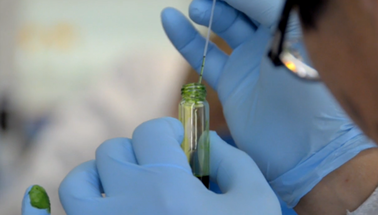
|
CNN: Commemorating 100 years since the world's hottest temperature
|
|
Sustainability Scientist Randy Cerveny assisted the World Meteorological Organization in investigating the flawed Libya record temperature, thus re-certifying Death Valley as the record holder. Read more »
|
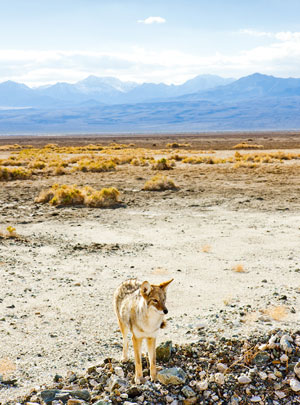
|
National Science Foundation: Our impact on urban heat islands
|
|
Sustainability Scientist Sharon Harlan says Phoenix is a perfect living lab to study urban heat island effects on vulnerable populations and that cool, green parks can help counteract increasing temperatures in cities. Read more »
|

|
|